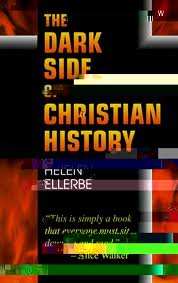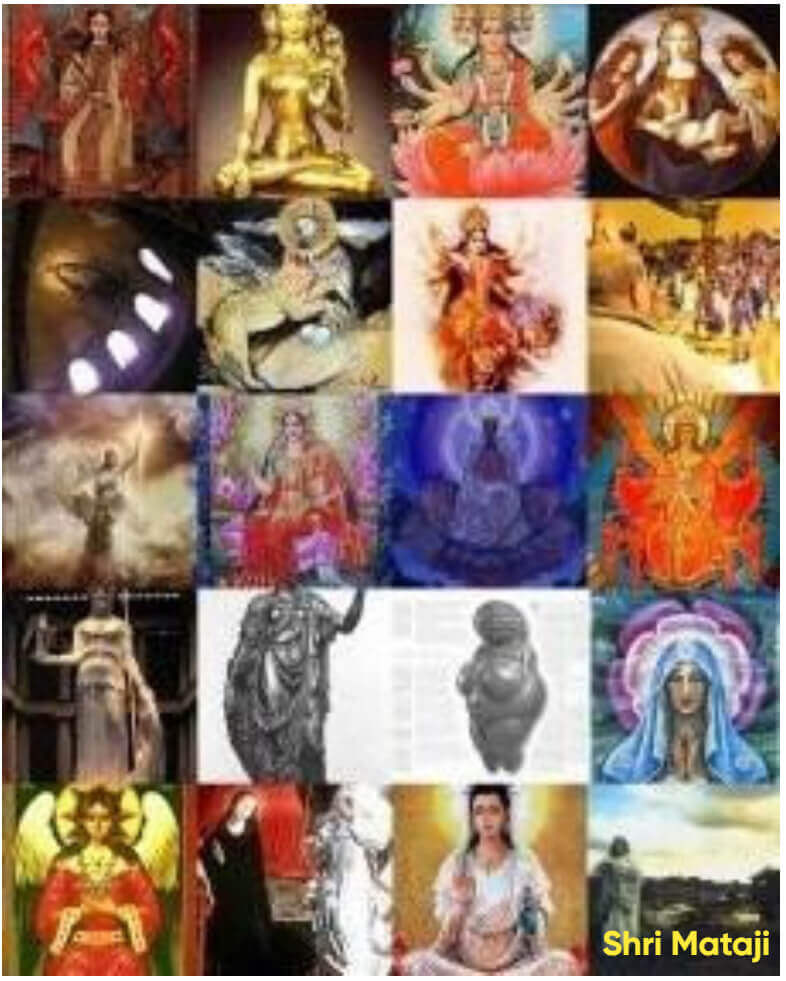Saving Jesus from the Church
Robin R. Meyers, a pastor and scholar, declares that Christianity must move beyond belief and return to following Jesus. He critiques institutional religion for burying Christ beneath centuries of dogma, ritual, and metaphysical baggage. Shri Mataji Nirmala Devi, speaking from divine authority as the Paraclete, goes further—declaring the Church a betrayal of Christ’s mission. She affirms that true spirituality lies not in creeds but in Self-realization and the awakening of the Spirit within. Together, Meyers and Shri Mataji call for a resurrection—not of bones, but of truth. The new Church will be one of Spirit, not stone; of seekers, not systems. Let the Resurrection begin—within.

I have never believed in the virgin birth as a biological fact, the infallibility of scripture as a test of faith, the miracles as past suspension of natural law demanding current suspension of reason, the blood atonement (that the suffering of the innocent can vicariously atone for the sins of the guilty) as the foreordained mission of Jesus, the bodily resurrection as the only way to understand Easter, or the second coming as a necessary sequel—and I am the pastor of a church that does not define Christianity this way either.
Naturally, people ask, "So what do you believe?" They seem puzzled by the answer. I say that we are not "believers" at all, not in the sense of giving intellectual assent to postbiblical propositions. Rather, we are doing our best to avoid the worship of Christ and trying to get back to something much more fulfilling and transformative: following Jesus.
We all know too well the abuses of fundamentalism in our time, and in one way or another we have all been living through a nightmare of bad theology married to bad public policy. But in the liberal church, some of us have failed to work as diligently at reconstructing the church as we have at taking secret, self-confirming delight in deconstructing it. As liberal Protestant churches declined and we bought the myth that it was because they were liberal (rather than how they were liberal), a whole generation has been asked to accept a false dichotomy. Either you believe that Jesus is God or you don't—therefore either you're a Christian or you're not.
Meanwhile, the most urgent question of all goes unasked: What kind of God did Jesus reveal? That question has been submerged beneath "battles for the Bible" and bitter disputes over the metaphysics of a Galilean sage. So it has become fashionably iconoclastic these days to ask, "Can I even call myself a Christian now?" Yet perhaps this is the wrong question, at least for those of us still in the church. Instead, we should be asking, "What is the proper object of our worship, and what would it take to make Christianity compelling, even irresistible, again?" How can our faith become biblically responsible, intellectually honest, emotionally satisfying, and socially significant?
Organized religion is now so dysfunctional that amateur atheists are writing bestsellers. It's easy—we wrote the script for them. It is no wonder so many mainline churches are dying. They have so long existed in maintenance mode that they have lost their prophet nerve. They have put so much energy into survival that they have forsaken their responsibility to be places of free and fearless inquiry and radical hospitality as well as spiritual sustenance. Alas, the work of rigorous biblical scholarship now takes place in almost complete isolation from the church and in some cases with a palpable animosity toward the clergy, considered by many in the academy to be clods.
Yet the people in the pews are not just reading The Da Vinci Code, The Secret, or The Prayer of Jabez. They are also reading Marcus Borg, John Dominic Crossan, and Karen Armstrong. They know the arguments for the Bible as both inspired and covered with human fingerprints, but they could use a little help in constructing a meaningful faith in a postmodern and, for many, a postorthodox world. They may not be literalists, but they are not atheists either, and many long to become part of a beloved community. They need help to construct a Christian faith worth having in a community worth belonging to.
HarperOne (February 24, 2009), pages 6-9
The Crucifixion of Truth: How Organized Religion Betrayed Jesus Christ
Organized religion today is an empire built not upon revelation but repetition, not upon transformation but tradition. Its hollowed cathedrals echo not the voice of the Spirit but the dull creeds of institutional survival. The sickness is so systemic, so total, that even amateur atheists are writing bestsellers, as Robin R. Meyers wryly notes—because “we wrote the script for them.” When spiritual institutions themselves cease to be conduits of Divine Grace, they become spiritual graveyards—well-manicured, heavily financed, and wholly bereft of life.
From the pulpit to the pews, the Church has become the tomb from which Christ must again rise. What was once a radical movement of inner transformation has ossified into lifeless ritualism. The Resurrection—meant to awaken us to the eternal Spirit within—has been reduced to a test of belief, a dogma, a historical controversy rather than a living spiritual truth. And in doing so, Christianity has not merely misunderstood Jesus. It has crucified Him again.
Robin R. Meyers: A Prophet in the Wreckage
Robin R. Meyers is no atheist; he is a pastor. Yet he declares boldly that the Church has “lost its prophetic nerve” and retreated into “maintenance mode”—a bureaucratic institution more concerned with tithes and attendance than with righteousness, justice, or spiritual awakening. He challenges the foundational pillars of post-biblical orthodoxy—the Virgin Birth, Biblical infallibility, blood atonement, and a literal bodily resurrection—as "past suspension of natural law demanding current suspension of reason."
But far from being an iconoclast for rebellion's sake, Meyers seeks not to destroy but to resurrect: not to abandon Christ, but to liberate Him from the Church that has buried Him beneath two millennia of metaphysical baggage. He insists that true Christianity is not about believing but following—not about creeds, but conduct; not about doctrine, but Divine experience.
“What kind of God did Jesus reveal?”
That question, he laments, has been buried under sectarian squabbles and theological abstractions. Yet until we return to it, Christianity will continue to be irrelevant to seekers and irresistible only to ideologues.
Shri Mataji: The Divine Verdict
Echoing Meyers from a completely independent, divine plane of authority, Shri Mataji Nirmala Devi—the founder of Sahaja Yoga and the spiritual incarnation of the Divine Feminine—delivers a far more blistering, cosmic critique. From Her unique vantage as the Paraclete, the Comforter promised by Christ Himself, She does not merely criticize the Church—She declares it a crime scene.
"It has nothing to do with Christ, believe Me... You really have to drop this word 'Christianity' from your vocabulary completely… otherwise you can never go to the essence. It is a fact; take it from Me."
— The Paraclete Shri Mataji, Christmas Eve Talk, Pune, 1982
Her indictment goes far beyond Meyers. She identifies the Church's obsession with money, power, and mental belief as not just misguided but blasphemous—an outright betrayal of Christ’s mission: to awaken humanity to their indwelling Spirit and guide them to Self-Realization.
"Some people have tampered with the scriptures, I am sure about it... So when an intelligent man looks at all these things, he becomes an atheist."
— The Paraclete Shri Mataji, UN Public Program, 1993
She sees through the charade of “born-again” certificates and televangelist fraud, calling out both Catholic and Protestant institutions as having "brought no good name to Christ." For Her, the Kingdom of God is within—not in church pews, not in holy water, and certainly not in bureaucratic orthodoxy.
The Cult of Clericalism and the Death of Inquiry
Meyers laments how the clergy are now viewed by academics as "clods"—because, indeed, most are. Not due to individual malice, but because the structure itself demands anti-intellectualism and discourages spiritual inquiry. The Church no longer welcomes questions; it fears them. It does not tolerate seekers; it manufactures believers. It is not a path to God; it is a prison of dogma.
Meanwhile, the seekers—those rare souls with a fire in their hearts—"have been caught by false gurus," as Shri Mataji explains, "because there is a market of such people." Religion today is a business, and seekers are mere consumers. Whether it’s the megachurch industry in the West or cults in the East, spirituality is for sale, and truth is off the shelf.
The Resurrection That Matters
If Christianity is to be saved, it must return to the Resurrection—not as a dogma, but as a living event within. The Resurrection is not about Christ’s bones. It is about the Spirit that overcame death and dwells now within us, accessible through actual spiritual awakening, not emotional manipulation or mental belief.
The Revelation received by Kash—the 14-year-old boy who witnessed the Resurrection in the company of Shri Mataji, the Adi Shakti Herself—is a testimony that dwarfs centuries of hollow theology. It reclaims Jesus not as an object of worship, but as a cosmic liberator, honored by Krishna, Buddha, Shiva, and Rama alike. This was no vision born of fantasy or dogma, but an authentic mystical experience beyond the grasp of ecclesiastical approval.
This is the true Resurrection: not just of Jesus, but of Truth Itself.
Conclusion: The New Ecclesia
A new Church must arise—not of stone, not of creeds, but of awakening souls. The Ecclesia Pneumatika—the Community of the Spirit—must replace the Ecclesia Corporata. This new Church will be free of priests, free of fear, and full of fire. It will be the realm of the Holy Spirit, not hierarchy; of revelation, not ritual.
Until then, let it be known: organized religion did not lose Jesus by accident. It buried Him—willfully, profitably, and repeatedly. And it will continue to do so until the seekers, the prophets, and the Paraclete Herself reclaim what was never theirs to own: the living Truth of the Spirit.
Let the temples crumble. Let the creeds collapse. Let the Resurrection begin—within.Pariah Kutta (https://adishakti.org)
https://chatgpt.com/c/6804f859-5ff4-8002-98d9-fe098a53f1c0
Related Articles:
 "The Dark Side of Christian History by Helen Ellerbe is a meticulously researched book that exposes the Catholic Church's role in perpetuating oppression, brutality, and spiritual suppression over nearly two millennia. The provided excerpt, focusing on the Inquisition and slavery from 1250 to 1800, details how the Church used fear, violence, and theological justification to maintain control, often at the expense of human dignity and spiritual freedom. Shri Mataji Nirmala Devi, the founder of Sahaja Yoga, condemned the Catholic Church for distorting Jesus Christ's message of love, forgiveness, and spiritual awakening, arguing that institutional Christianity has 'nothing to do with Christ'." Helen Ellerbe, The Dark Side of Christian History
"The Dark Side of Christian History by Helen Ellerbe is a meticulously researched book that exposes the Catholic Church's role in perpetuating oppression, brutality, and spiritual suppression over nearly two millennia. The provided excerpt, focusing on the Inquisition and slavery from 1250 to 1800, details how the Church used fear, violence, and theological justification to maintain control, often at the expense of human dignity and spiritual freedom. Shri Mataji Nirmala Devi, the founder of Sahaja Yoga, condemned the Catholic Church for distorting Jesus Christ's message of love, forgiveness, and spiritual awakening, arguing that institutional Christianity has 'nothing to do with Christ'." Helen Ellerbe, The Dark Side of Christian History


